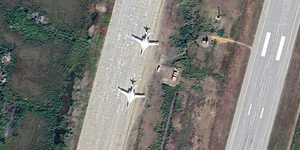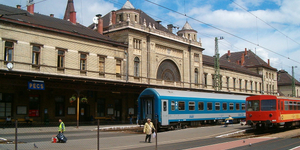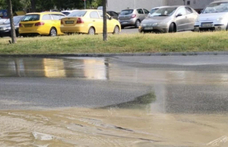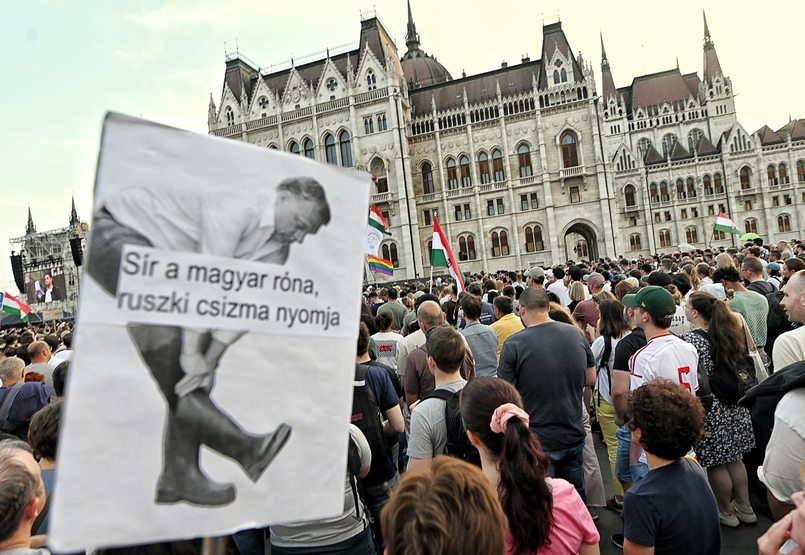Just before Christmas, the mayor of Kaposvar surprised his citizens by cutting taxes by 18 per cent. "The local authority is trying to rein in the financial burdens the government has placed on people's shoulders," he said, explaining the generous gesture. For this reason, the local authority would cut communal taxes by HUF800 per property per month. However, Karoly Szita, the city's Fidesz mayor, did not add that the local authority would cut subsidies to the local transport authority by HUF14m in 2007, covering this by raising fares by 14.5 per cent, twice the expected rate of inflation, as well as reducing the journey frequency.
So the city fathers' decision to raise fares was influenced not by increasing transport costs but by the desire to send a positive political message via their generosity. This despite a law on fares which obliges local authorities to set their fares in accordance with the real cost of the transport required. But local councils often ignore this rule. It is common for councils to set prices for local services in accordance with social policy or asset management goals, as is shown by a HVG survey of prices in towns with populations greater than 25,000.
Residents of Pecs, which comes high up on the list of expensive towns, pay dearly for district heating because the power station from which the heat is purchased has never been modernised. The roots of this omission go back six or seven years, when the Socialist-dominated council ran into financial difficulties, forcing it to sell its 49 per cent stake in Pecs District Heating. The buyer wasa Pannonpower Holding, an American-owned company, with whom the council signed a 14-year contract. But the buyer was the main beneficiary of this scheme, since the company is only obliged to modernise the facility after 2010. By combining heat and electricity generation, however, it is possible to generate heat far more cheaply with a modern gas-turbine power station. Energy prices are the main determinant of price, of coures, as is shown by the case of Ajka, where the local power station is fired by woodchips, and provides heat at one quarter the price of the city of Pecs.
Of course, costs do not always carry weight when the decisions are taken. In Hodmezovasarhely, for example, water and sewage tariffs, which are already cheaper than average, are not being raised at all. Janos Lazar, the town's Fidesz mayor, who was re-elected in October, was talking proudly in August about how his city had managed to buy back the waterworks, which was then in German hands, for the symbolic sum of HUF100. His reasoning was that an onerous contract would burden the town's population in the long term. Of course, as part of the transaction, the town had to take on the company's debts, covering them by issuing a HUF3.7bn bond, which is challenging for a town with a budget of HUF19bn that is already groaning under the burden of a HUF12bn debt. Gyula Hernadi, an opposition councillor described the situation saying: "If we find a large oil field beneath the city, that should solve our problems."
The Szentes refuse treatment system is cheap for similar reasons. The monthly charge is less than a third of Budapest's. Of course, the price in Budapest includes the HUF500m it costs to maintain the capital's low-emission incinerator each year. In Szentes, the prices are kept artificially low as the result of a political deal that Sandor Varga, head of the city's refuse treatment service, does not even try to hide. In two years' time, the people of Szentes will probably have to swallow a drastic price increase in one go, because the city will have to upgrade the incineration plant to meet new, stricter environmental protection standards.
The general rule is that public services are more expensive in larger towns. One reason for this is that distances are shorter in smaller towns, making public transport cheaper to provide, and that cheaper alternatives to district heating tend to be used. But Budapest is not especially expensive - also because the city government has a tendency to mix social and price policy together. For example, the service providers each year pay "public interest donations" running into the hundreds of millions to a foundation for people who have difficulty paying the service charges. Refuse disposal services and district heating services in Budapest are priced so that politicians have a fund to finance their generosity, taking advantage of companies that are fully or partly owned by the city's local authorities.
Discounts are widespread in Mak, one of the most expensive towns, where more than half the population benefits from the council's munificence. The absolute winners in refuse collection are Kaposvar and Szekszard, where collection is free, although it is obvious that somebody is paying somewhere, whether via taxes or through other service charges.
Well-capitalised investors can also help keep local service charges down. This is shown by the cases of Szekesfehervar and Jaszbereny, which enjoy some of the cheapest public services. These two towns benefit from high local commercial tax revenues. In Szekesfehervar, local tax revenues per head stood at HUF58,000 in 2004, and at HUF56,000 in Jaszbereny, compared to HUF35,000 in Pecs, HUF40,000 in Debrecen, and HUF14,000 in Komlo. Tax revenues per head in Budapest stand at HUF100,000, which helps Budapest avoid the title of most expensive city. Jaszbereny is the site of Electrolux, which has one of its most important European manufacturing site in the city, contributing huge amounts in tax. But where there is no one large taxpayer, services have to be financed through fees, not through local taxation. Where there is no investor and the population is also unable to pay, the state has to reach out a helping hand. Miskolc counts as a disadvantaged council, and received HUF471m in support for this reason in 2006.
Water is also cheap in Jaszbereny, even though the city's waterworks manages to book a 5-7 per cent profit each year. Normally, larger water networks are more profitable, but Salgotarjan's waterworks, with three times as many customers, survives on bank loans, despite charging four times more for a cubic metre of water. Salgotarjan does not have its own water supply, and has to buy water from the regional waterworks at a price of HUF248 per cubic metre.
YVETTE SZABÓ


















